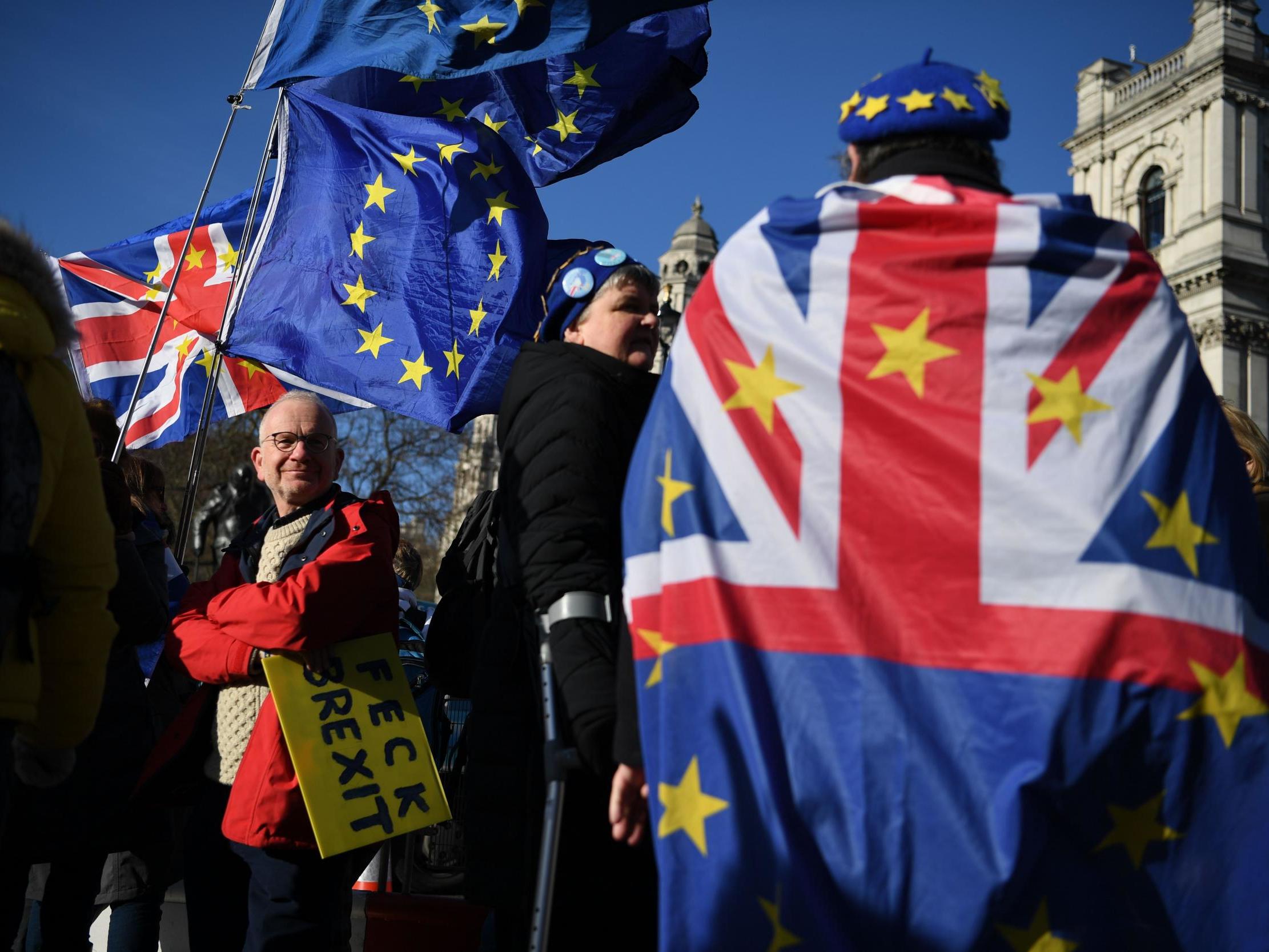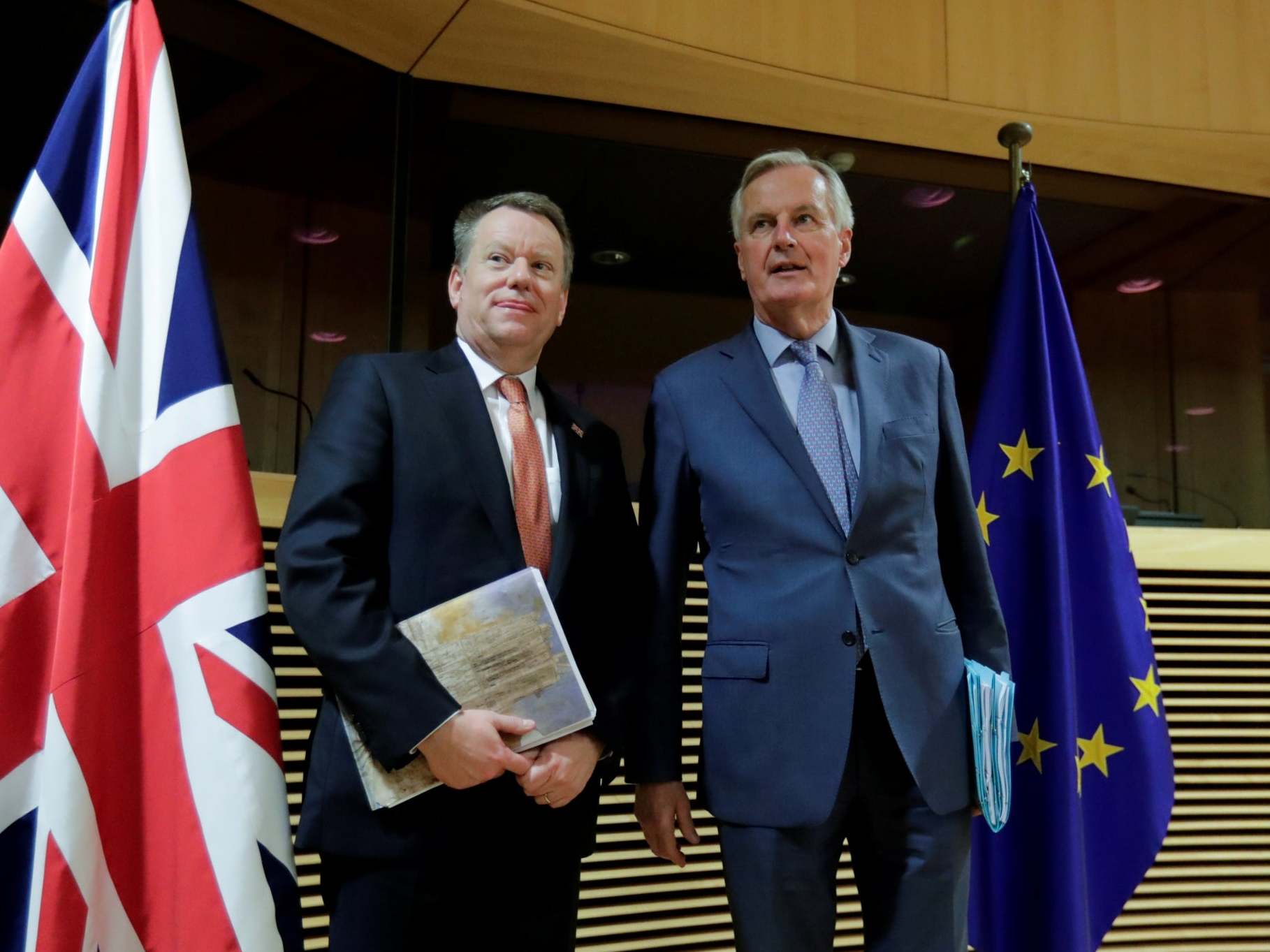What is the Brexit deadline at the end of June, and what happens if it is missed?
Final date for extending trade negotiations will probably pass without fanfare, writes Andrew Woodcock


Tuesday marks yet another deadline in the Brexit process, but it is one which will pass with no last-minute wrangling and no fanfare. Under the terms of the withdrawal agreement sealed between London and Brussels last October, 30 June is the last day on which the UK can request an extension to its transition to new post-Brexit arrangements.
But Boris Johnson has repeatedly insisted he will not ask for more time, and Cabinet Office minister Michael Gove formally told Brussels on 12 June that no extension would be requested.
Maros Sefcovic, European Commission vice president, responded that the offer of a one- or two-year extension remained on offer, but accepted that the UK’s position was “definitive”.
The decision dramatically increases the chance of a no-deal Brexit at the end of 2020, particularly as the Covid-19 pandemic has diverted political attention in EU capitals away from the long-running psychodrama of British withdrawal and on to the priority of social and economic recovery from the virus fallout.
Although the UK formally left the EU on 31 January, last year’s withdrawal agreement introduced a transition period to 31 December, during which Britain continues to observe Brussels’ regulations and to enjoy the benefits of access to the single market and customs union.
The period was originally envisaged to last 21 months from the scheduled Brexit date of 29 March 2019, already regarded as an extremely tight timescale to conclude a highly complex deal on the future relationship on issues like trade and security. But the end date was not shifted as Brexit Day was repeatedly postponed, eventually leaving just 11 months for negotiations.
The withdrawal agreement struck by Mr Johnson committed the UK to a financial settlement of around £30bn to the EU, the creation of a customs border down the Irish Sea and mutual recognition of the rights of expats, but did not address the crucial issues of tariffs and other barriers to trade, standards, regulations and bureaucracy, which must be settled in order to avoid a no-deal crash-out on World Trade Organisation terms.
Business organisations and pro-EU parties like the Liberal Democrats and Scottish National Party have implored Mr Johnson to accept an extension in order to avoid WTO terms, which would result in tariffs on a wide range of imports – such as a 10 per cent levy on European cars – though Labour’s Sir Keir Starmer has held back from such a demand, possibly to avoid being branded anti-Brexit by the Tories. The prime minister has taken to referring to departure without a trade agreement as an “Australian-style deal” and insists the UK has nothing to fear from it.
Mr Johnson previously threatened to walk out of talks if no significant progress was made by July, but despite the absence of any breakthrough, face-to-face negotiations are to resume on Monday and the process is now expected to come to a head in October.
Major barriers to agreement remain. The EU wants continued access to UK fishing waters, while London insists it must be renegotiated annually. Brussels wants both sides to commit to a “level playing field” on social and environmental standards, while Britain says it wants to make its own rules. The EU says the European Court of Justice should be involved in resolving disputes over the implementation of a treaty on the future relationship, but the UK says it will not be subject to the rulings of the judges in Luxembourg.

An Ipsos Mori poll last week found that less than half of Britons knew that there was a deadline this year for sealing a deal on the future relationship, with just 37 per cent correctly identifying that it falls in December. Some 23 per cent thought negotiations could continue into subsequent years and 5 per cent that there was no deadline.
Just 30 per cent thought a deal would be struck before the end of the year, and just 25 per cent thought a deal that is good for the UK could be reached in that time. A clear majority (62 per cent) thought it likely that the transition period will end without a trade deal.
Trade experts agree that a deal on the scale envisaged has historically taken several years to conclude. But others look to the history of EU negotiations and say that come the autumn, political pressures will induce one side or the other – and probably both – to make last-minute concessions to avoid the inevitable disruption of a messy no-deal outcome.
And those concessions may well include a last-minute decision by Johnson that he does want an extension after all, and a last-minute decision by Brussels that July wasn’t actually a hard deadline for the request.
After all, the PM has previously backed down at the last minute on pledges to take the UK out of the EU in October 2019 and to resist any trade barriers between Northern Ireland and the British mainland.
Join our commenting forum
Join thought-provoking conversations, follow other Independent readers and see their replies
Comments